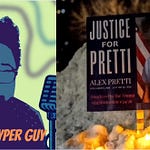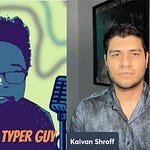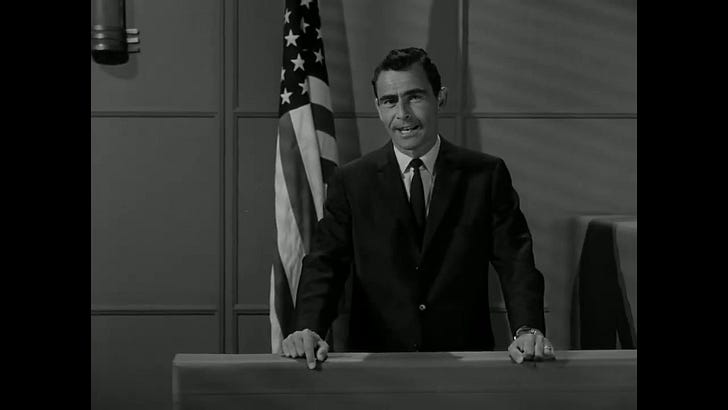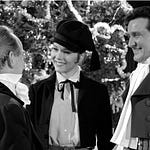The West Wing premiered 25 years ago, and I consider it timeless because it was never truly of its time. President Jed Bartlet was an idealized version of President Bill Clinton, and he’d later go on to defeat an obvious George W. Bush stand-in. Star Trek: Deep Space Nine, which ended the same year The West Wing began, was probably more grounded in reality.
Yet, there’s something appealing about The West Wing’s optimistic view of government — now, perhaps more than ever. Writer and all-around swell person Jamie Frevele joins me to reminiscence about the series and that sparkling Aaron Sorkin dialogue.
Download the podcast above and/or watch the YouTube version below.
Transcribed excerpts from our conversation.
SER: Please tell us about your interest in The West Wing and how you started watching.
JAMIE: I’m an early adopter. I was watching it from the actual start. It premiered when I was 19 years old and I didn’t know anything about politics. I remember just thinking, first of all, there’s so many cute boys on it. I’m very interested in all the very attractive men that are on this show. But when I finally tuned in and the pilot came out, it was the first time I’d ever seen something marketed as a drama that was also so hilariously funny. It was such a great pilot because it really showed us a bunch of characters who were very flawed people. They made a lot of mistakes. But at the same time, they were giving us every reason to root for them.
I think that that was the magic of the show was that we’re watching relatable human beings who happen to run the beating heart of the country, which is a little scary to think about, especially when you [consider] a show like Veep, which is a direct descendant of The West Wing, I believe.
It’s just a bunch of people who have really great ideas and good ideals and just a spirit in them that they want to be public servants and they give their lives over to this. They don't get paid well. Their social lives suffer, but they’ve got something in them. They're just wired in a certain way.
I would watch the show every few years, and it would always feel different. It was a different watch in my 20s. It was a different watch in my 30s. It’s a different watch in my 40s.
As I got older, the show always meant something different and new to me. That brings me to kind of now where I think about the show. I haven't been able to watch it. I don't know when I'm going to be able to again. There's just something about it where it really is a fantasy now. And it always was.
It was a show that was created [during the Clinton years] but it really hit its stride during a Republican presidency. And this was very clearly a Democratic president. But it just seems like it’s even further away now. Now it seems like seriously science fiction fantasy. It just seems so far away.
Thinking about what all those characters stood for and what that show stood for. It seems like that’s dead.
SER: You’ve mentioned the show Veep, and I think I’ve written something about this, as it’s related to Kamala Harris and earlier with Hillary Clinton. We rarely — and maybe there are some examples that people might know and leave in the comments if they’ve heard of them — see dramatic depictions of a flawed but great leader who is a woman. Because The West Wing is very much the “great man” theory of politics — Bartlet’s staff might get upset with him or challenge him but ultimately they think he’s a great man. He is a great leader. They truly believe in him. Later when they have a sort of loser vice president [Bob Russell, played by Gary Cole], they're kind of like, he is not a great man. He’s not worthy to do this. Even the Republican played by Alan Alda is better suited. This is after Sorkin left, but that thread remained of the “great man.”
Whereas Veep is a comedy and certainly has a much more cynical look at politics. Selina Meyer, played by the great Julia Louis-Dreyfus, she’s not an especially inspirational person. She doesn’t believe anything. She is a sort of what people I think on the Left and the Right would have cynically said about Kamala Harris or Hillary Clinton: Either all they want is power or they’re an empty suit and they don’t believe anything.
And when we look at [supporters of Bill Clinton, Barack Obama, and Bernie Sanders], there was this idea that, “Oh, this man might have flaws, but he’s a great man.”
What are your thoughts on this? How much of our media sort of primes us to view [presidential politics] that way?
JAMIE: Men just get so much more of a pass than women do because women have to be perfect. [CNN correspondent] Van Jones said it really well. He said Kamala Harris had to be flawless while Donald Trump could be lawless.
And it’s true. She was held to such impossible standards in such an impossible situation, and he was held to none. And people on his side still consider him a “great man” for some reason. I don't know. I have really lost faith in America seeing a woman in that way, because in my opinion, we had two opportunities to see that and decided against it.
This is why this election really killed me. It’s like we were given someone who was so immensely qualified and had ideas had come up in the middle class and and really earned her way up and then some like she was so ready for this and then there’s this other guy
And he gets away with literally everything and no one cares. But she has “word salads,” which is a phrase if I ever hear again. I’m going to throw my computer out a window.
But I’ve really lost faith in ever seeing that happen here. It’s like this election told me this country does not want to see women that way like I do.
But I’m a woman, so I don’t know what someone who isn’t a woman sees. It’s a really conflicting, upsetting thing that’s weighed heavily. I mean, Selina Meyer is like Nancy Mace. She’s just out for attention. She’s out there to get TV hits. She’s not out there to legislate. She’s not out there to be a public servant. She’s out there to be a political influencer.
















